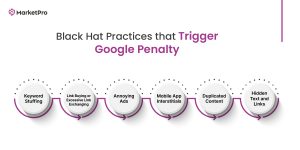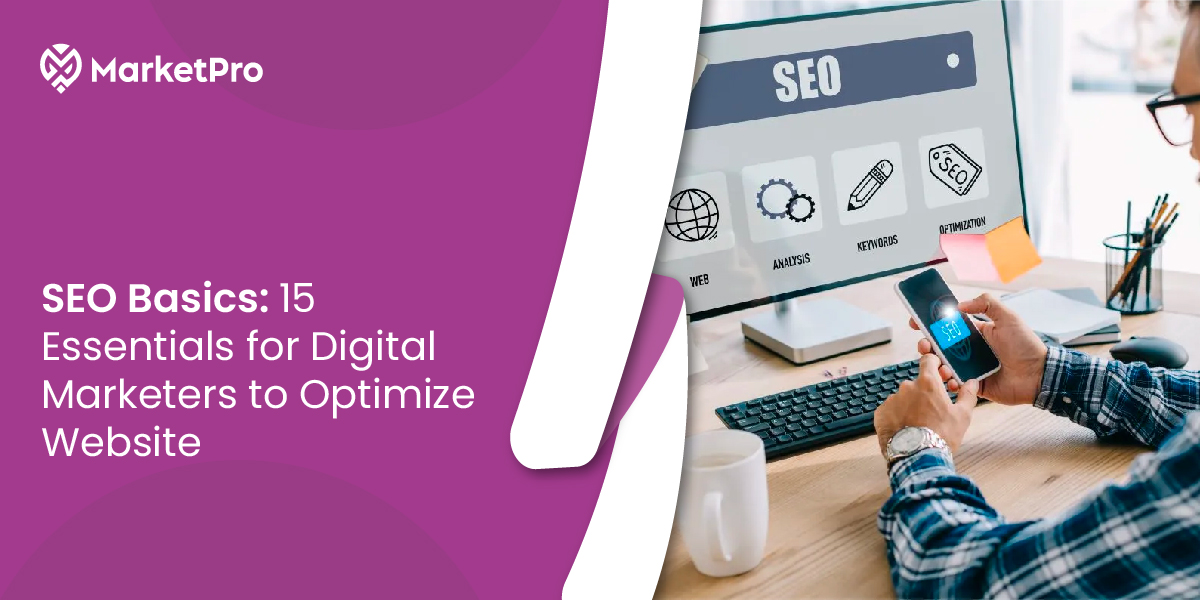Google has been quite busy making algorithm changes over the last few years. The shift in search algorithms profoundly impacts the digital landscape, highlighting that Search Engine Optimization (SEO) is ever-evolving. As the search engine fine-tunes its website ranking strategy, adapting and staying informed about the trends and best organic SEO practices has become crucial for digital marketers. Whether you are a seasoned SEO professional or a newbie, the blog will give you some essentials to optimize your site and stand out in the digital market.
Understanding SEO
SEO is an umbrella term for all digital marketers’ strategies to ensure their sites and content visibility on SERPs (Search Engine Results Pages). The tactics differ from technical methods performed behind the scenes on a site (‘on page SEO’) to the promotional approaches used to boost a site’s visibility (’off page SEO’).
A survey was conducted among SEO professionals across the globe in 2022. 11.3% said that Machine Learning (ML) and Artificial Intelligence would be among the most crucial emerging factors influencing search rankings in the next two years. However, 9.9% of respondents mentioned mobile SEO as another key factor.
What Search Engines Are Looking for
-
Relevancy
A search engine provides relevant results to any searcher’s query, from simple answers to queries such as “How old is Stephan James?” to more complicated ones like “What’s the best digital marketing company nearest me?”
How any search engine gives such results depends on its internal algorithms, which can never truly be determined. However, there are factors that digital marketers are sure will influence such results, and they depend on relevancy. For example, a searcher’s demography, search history, year or time of day, etc.
-
The Quality of Content
Do you regularly publish informational and audience-focused blogs, videos, or other popular content as a digital marketer? Is the content written for human beings instead of the search engine? According to research, short or long-form content covering all aspects performs better in the search results. So, stop doing keyword stuffing and focus on providing good content to your audience.
-
User Experience
SEO helps provide a great user experience. To ensure a top-notch experience, it is necessary to have a website that is easily navigable and searchable, features relevant internal links, and provides quality and audience-focused content. All this will keep users staying on your webpage longer and exploring more. A survey was conducted among SEO professionals worldwide 2022 in which 10% of respondents said user experience was their focus area for SEO campaign in the next 12 months.
-
Site Speed and Cross-device Compatibility
One of the significant factors that makes your site stand out for search engines is the speed with which your web pages load. Moreover, your website and content compatibility for any screen or device matters most. Remember that responsive design is Google’s preferred method for mobile optimization.
-
Internal Linking
Ensuring that your site has user-friendly navigation is one of the most important essentials of SEO. Internal linking is another effective practice writers, and editors can consider when publishing content to drive website traffic.
Internal linking offers many benefits, such as:
- Gives the audience several reading options.
- Helps to enhance your content’s ranking for particular keywords.
- Facilitates Google in crawling and indexing your website.
-
Authority
An authority site is a website trusted by the sector it operates in, its users, other sites, and search engines. Conventionally, a link from authority sites used to be valuable, as it’s counted as a plus. The more authority sites link, the higher quality content, and the more chances your site becomes an authority.
-
Title Tags and Meta Descriptions
Title tags tell the visitors, as well as search engines, what your site is all about in a precise way. The keywords used in title tags are highlighted in Google and other search engine results and the browser tab while sharing your website externally. Only use accurate and relevant keywords; remember that the content is written for humans.
A meta description comprises a short paragraph in search results under the page’s URL. Such descriptions help boost the chances of searchers clicking on your content. Make sure it’s 156 characters long and covers the crux of your article.

-
Schema Markup
One thing to make search results appear catchy is inserting Schema markup into the HyperText Markup Language (HTML) pages. This facilitates turning search results into a good media playground by adding customer ratings, images, star ratings, and other helpful information. Schema is one of the preferred markup methods of search engines like Google, and it is easy to use.
-
Properly Tagged Images
Many publishers forget including the “alt attribute” while uploading images in their content, and this is something that must not be overlooked. The reason is that Google can’t ‘see’ the images inserted in the content but can read the alt text. Describing the image in alt text precisely will enhance the chances of images appearing in Google’s image search. It will also enhance your site’s accessibility for those using ‘screen readers.’
-
Evergreen Content
Rather than publishing ‘quick win’ stories having little information, try posting evergreen content. Thought-provoking guides can lead to long-term wins by generating traffic and getting a significant position in the SERPs.
-
Domain Names
Using sub-directory domains instead of sub-domains is essential for your site architecture. Avoid hyphens and alternative popular domain names, as they are considered spam. Having a domain name rich in keywords may cause Google’s closer scrutiny. Also, remember that operating a website without having a prefix www will redirect a user who types www.example.com to your site. If it doesn’t happen, Google might assume they are two different websites, compromising your site’s visibility.
-
Headlines and Permalinks
The headline for your content must be under 70 characters so that it can be visible in SERPs. Ensure that headlines are catchy and descriptive. Avoid promising something that your content can’t deliver. The URL does not necessarily have to be the same as a headline.
-
Comments
Never turn off the comments section. Regular commenters under your posts show readers want to praise or ruthlessly eviscerate your content. Either positive or negative comments, at least visitors are reading the content. Be mindful of filtering out comments that are spam. Add a nofollow value to the comments section so that Google ignores invalid links that may appear.
-
Local SEO
The particular locations of users help search engines generate customized results. Local SEO helps companies attract potential individuals at the right moment, like those looking for their favorite restaurants or the best Local SEO services in town.
-
Social Media Marketing
Non-technical SEO like social media marketing helps businesses boost their site’s visibility. Be active on all social media channels and use them as a customer service platform to drive traffic to your website.
How Can Market Pro Help?
Is your content not ranking issues or showing up in the top SERP results? Market Pro, the innovative digital marketing firm, helps you thrive in this digital landscape. Our professional SEO services help boost your website’s visibility on Google and other search engines. Our SEO marketing plans are budget-friendly whether you are running a startup, SME, or larger enterprise.

